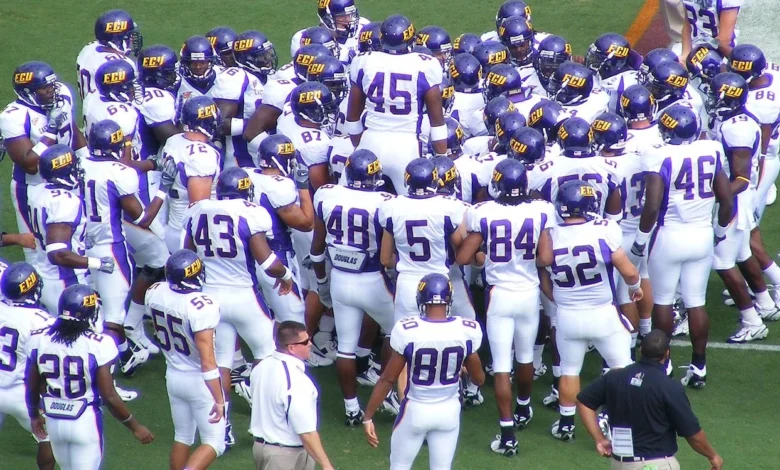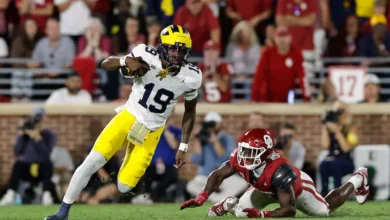Reedsburg football team Amish

Background: Reedsburg High School & the Football Program
Reedsburg football team Amish: Reedsburg Area High School (RAHS) is a public high school located in Reedsburg, Wisconsin, serving surrounding communities including Loganville, Rock Springs, La Valle, and Ironton. Its athletic teams are known as the Beavers, and the school participates in various sports, including football.
Historically, the football program has had successes — for instance, the team won the Division III state championship back in November 2009, defeating West De Pere 34–27. Over the years, the program has been an important part of the local high school athletics landscape, engaging students, families, and the community.
In August 2024, however, the Reedsburg football team became embroiled in controversy when nine juveniles, some identified as football players, were cited for disorderly conduct for alleged harassment against the Amish community in the area. This incident led the school to cancel its first two varsity games of the season amid ongoing investigation
Thus, the “Reedsburg football team Amish” phrase refers largely to this troubling incident, which stirred community tensions, media coverage, and scrutiny of student conduct.
The Incident: What Happened & Alleged Harassment
According to public reporting by local media and law enforcement:
-
During early August 2024, multiple reports surfaced of harassment directed at members of the Amish community in rural areas around Reedsburg.
-
On August 11, the Sauk County Sheriff’s Office responded to complaints and conducted an investigation. Contact was made with a suspect vehicle. Ultimately, nine juveniles from Reedsburg were cited for disorderly conduct.
-
Local accounts and social media suggest the allegations included vandalism to Amish property (barns, outbuildings), shooting paintballs at horses, and throwing firecrackers toward houses. †
-
Because minors were involved, details remain partially sealed; law enforcement and the school have released limited public commentary citing the confidentiality of student matters.
† Note: “local accounts” means reports in media or via public statements, not a court judgment.
This alleged harassment raised concerns not only about student behavior but also about prejudice, respect for religious and cultural minorities, and the responsibility of young athletes.
Impact: School, Community & Football Season Disruption
The fallout from the incident had immediate and ripple effects.
Game Cancellations & Team Disruption
Reedsburg High School canceled its first two varsity football games (scheduled August 23 and August 30) due to the investigation and the unavailability of sufficient players. The district statement explained that confidentiality and ongoing inquiry constrained what details could be shared.
This disruption impacted senior players, families, and the team’s morale. As the principal put it, seniors “will be facing a shortened season.”
Community Tension & Reconciliation Attempts
Local residents expressed dismay and called for accountability. Some Amish community members, in interviews, reportedly remained forgiving. A resident, Amanda Jean, visited several Amish homes, noted property damage, and described the victims as “kind and forgiving.”
A community dinner fundraiser was later scheduled for September 11 in Reedsburg to support the affected Amish community.
Public Relations & Institutional Reputation
For Reedsburg High School, the incident became a “teaching and learning” moment, per the district’s statement, but also threatened reputational damage. The school emphasized it would not let the incident define the institution.
Locally and regionally, the story drew media attention, creating pressure on school leadership, parents, and student athletes.
Legal & Disciplinary Implications
While the juveniles were cited for disorderly conduct, further school discipline was expected but not publicly detailed due to privacy of minors. Whether there will be longer-term consequences (e.g. suspension, expulsion, community service) remains uncertain in public records at this point.
Broader Context: Amish Community, Rural Relations & Youth Behavior
To fully understand why this incident resonated, we need to consider the wider social and cultural context in that region.
The Amish in Wisconsin & Rural Communities
The Amish community in Wisconsin lives in rural settings and maintains religiously informed traditions, including separation, humility, and non-resistance. They often attract respect for their crafts, agriculture, and peaceful living. Any harassment against them — property damage, targeting livestock or homes — can trigger strong moral and legal reactions.
Instances of vandalism or aggression toward religious minorities can be perceived not just as youth mischief, but as bias or hate incidents. Although state crime data seldom categorize offenses specifically targeting Amish, such events spark questions of respect, tolerance, and minority rights.
Role of Student Athletes in Culture & Conduct
High school athletes often occupy elevated social standing in small communities. They carry responsibilities: being role models, ambassadors of school spirit, and representatives of community values. Misconduct by players can thus carry heavier symbolic weight than similar actions by non-athletes — especially when tied to prejudice or harassment.
Schools and communities typically hope that athletic programs reinforce discipline, teamwork, respect, and integrity. When those expectations are broken, the contrast is sharper.
Youth Behavior, Peer Dynamics & Escalation
Teenage misconduct, pranks, or group peer pressure can escalate. Firecracker throwing, vandalism, or targeting property may start as “dares” but cross into criminal or socially harmful behavior. In this case, the involvement of multiple youths, alleged targeting of Amish property, and the involvement of a public institution (the high school) magnify the seriousness.
The incident invites questions of how youth are taught respect, bystanders’ roles, supervision, and accountability in communal life.
Lessons, Responses & Paths Forward
To move past the controversy, several lessons and strategies can be considered:
1. Accountability & Transparent Consequences
While privacy of minors is important, clear institutional signals about consequences — team suspension, community service, restorative justice — help restore faith. The school and district must manage this balance.
2. Dialogue & Reconciliation with Affected Community
Organizing events (like the fundraiser dinner) encourages healing, acknowledges harm, and reaffirms community cohesion. It gives space for Amish voices to share impact and for the youth to listen.
3. Education & Cultural Sensitivity Training
Implementing training or curriculum about religious diversity, respect for minority cultures, and civil conduct helps prevent future incidents. Integrating robust character education in athletics and student life can reduce such acts.
4. Reinforcing Athlete Conduct Policies
The athletic department can revisit codes of conduct, requiring players to sign behavior agreements, attend workshops, or face stricter penalties for misconduct off the field.
5. Community Engagement & Oversight
Involvement of parents, community leaders, Amish community representatives, and local law enforcement in oversight, regular check-ins, or advisory roles may foster better cross-community understanding.
6. Restorative Justice Approaches
Instead of purely punitive actions, restorative justice (where offenders meet victims, seek forgiveness, and commit to repair) may be more constructive, especially in small communities where relationships are ongoing.
Conclusion & Ongoing Implications
The Reedsburg High School football program found itself at the center of a serious community scandal in 2024 when several student athletes were cited for alleged harassment and vandalism targeting the Amish community. This led to canceled games, reputational damage, community tension, and a moment of reckoning for both the school and the local culture.
Beyond the specifics, the incident highlights how youth behavior, religious minority rights, and the expectations placed on student athletes intersect in small towns. The efficacy of the response — in accountability, dialogue, education, and reconciliation — will influence not only the lives of the students and families involved, but also broader community trust.




